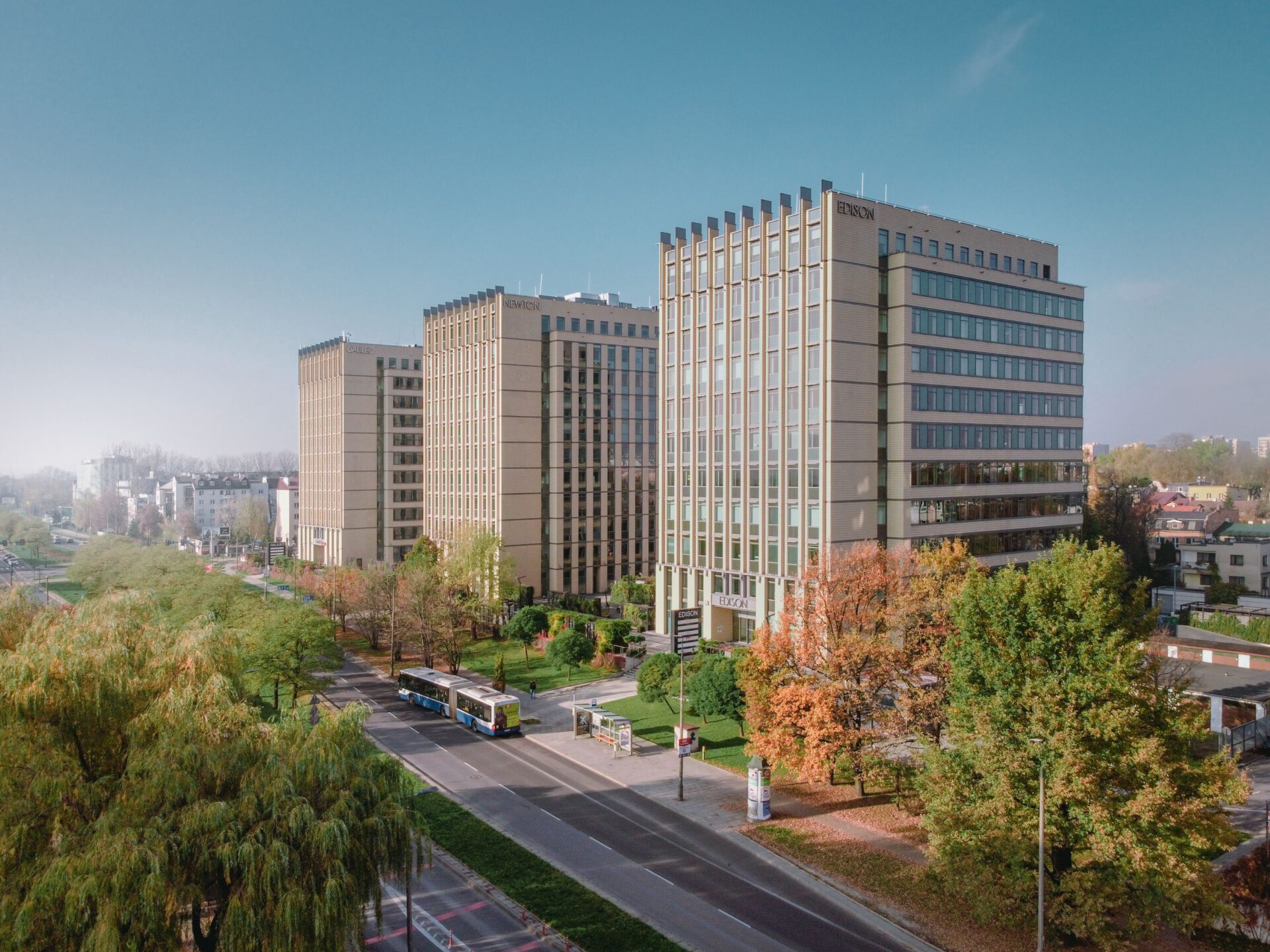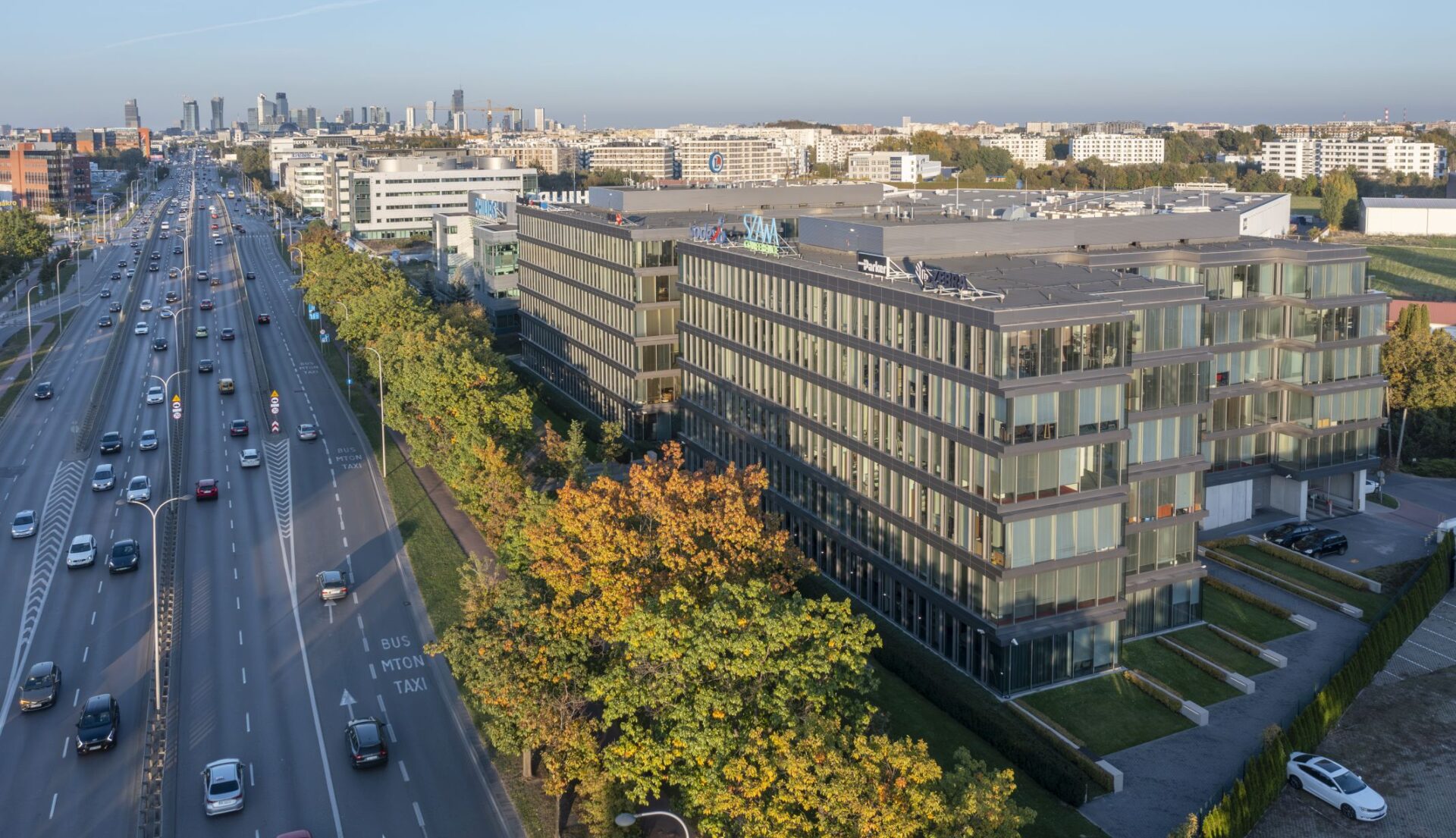Although employment in the shared services sector is growing by the year, this has not led to stronger demand for office space. However, SSC/BPO/R&D centres remain key office tenants in Krakow and Wrocław. Warsaw also continues to feature on corporates’ radars.
According to the ABSL’s latest report, at the end of the first quarter of 2023, the shared services sector in Warsaw, Krakow and Wrocław had a combined headcount of over 250,000 and is expected to hire another 20,000 people this year. By comparison, the nationwide figure for this sector exceeds 435,000 employees, constituting 6.7 percent of the total for the enterprise sector. The fastest growth in the last five years was seen in Warsaw, which has nearly caught up with Krakow – the biggest employer in the shared services sector in Poland. This sector’s total headcount in the two cities is expected to surpass 100,000 this year.
KIBS compete for talent
Warsaw, Krakow and Wrocław – the largest Polish cities – are trying to attract KIBS centres providing more complex and advanced services. KIBS stands for Knowledge Intensive Business Services, which is business operations and services largely reliant on professional and advanced technological or industry knowledge. “Benefiting from huge labour pools and deepening university-business cooperation, the largest Polish cities are well-positioned to accommodate and run highly knowledge-intensive processes. Global corporates seeking experienced and well-educated talent are first looking for opportunities to set up service centres in the strongest university towns and cities,” says Anna Szymańska, Head of the Office Department at Newmark Polska, who adds that in attracting shared service centres, in addition to domestic competition, Polish cities are under competitive pressure from other countries such as Romania, Bulgaria, the Czech Republic, Spain and India.
With over 250,000 students attending state-owned and private universities, Warsaw is the leading academic centre in Poland. The runner-up is Krakow with 18 higher education institutions and a student population of approx. 130,000. “Krakow’s major strength lies in its pool of professionals combining language proficiencies with expertise in other areas such as ICT, engineering, administration and HR management,” says Katarzyna Wysocka, Director of Entrepreneurship and Innovation Department, City of Krakow. “Krakow universities cooperate with business, which has resulted, among other things, in a new study programme in Poland at the Krakow University of Economics: Global Business Services (GBS). The programme has been developed in close cooperation with companies and educational institutions. Its partners include the ABSL and 28 leading organisations from the business services sector, as well as local startups and the Krakow Town Hall. In this academic year GBS received 497 applications, five per place,” explains Katarzyna Wysocka.
Wrocław, which has more than 106,000 students, is another shining star among university cities. A great example of cooperation between higher education institutions and manufacturing is the IoT Laboratory, which was launched by the computer science faculty of the WSB Merito University as a joint project of the university and GlobalLogic, a US-based company providing software product design and development services.
New business-relevant study programmes are developed in partnership with the Wrocław Agglomeration Development Agency (ARAW). “Together with the ABSL, we are working on launching a bachelor’s degree programme in SSCs at the University of Economics. We actively promote university-business cooperation by supporting, among other things, the establishment of the first Polish branch of the UK’s Coventry University in Wrocław,” says Weronika Mystek, Senior Specialist, Investor Support Department, Invest in Wroclaw / ARAW.
Krakow and Wrocław are key destinations for SSC/BPO tenants
Newmark Polska notes that the growth of the Polish office market has for years been driven by shared service centres. “Given the employment level in the region, we estimate that companies from this sector occupy more than two million square metres of office space in Warsaw, Krakow and Wrocław, constituting over a quarter of the combined office stock leased in the three cities. In percentage terms, the shared services sector has the biggest market share in regional cities – it accounts for 55 percent and around 45 percent of the total leased office stock in Krakow and Wrocław respectively,” says Agnieszka Giermakowska, Research & Advisory Director, ESG Lead, Newmark Polska. “In addition, our statistics show that in the first three-quarters of 2023 companies from the business services sector signed new leases for more than 68,000 sqm in Warsaw, nearly 53,000 sqm in Wrocław and more than 38,000 sqm in Krakow.”
Although the growth of shared service centres has slowed significantly in recent years, companies active in Poland are growing in their current locations and some are branching out into other cities. As a result, employment in SSCs continues to grow, but this has not, however, led to increased demand for office space due to the widespread adoption of hybrid working patterns in this sector. The shared services sector is an international environment in which working from home and, even if for some time, from anywhere in the world is an incentive for employees to choose a specific employer. Despite growing headcounts, this allows organisations to keep their office footprints unchanged, so we do not expect any significant increase in leasing volumes in this sector,” explains Anna Szymańska.
New players in new offices
The highest concentration of shared service centres in Poland is in Warsaw (356), Krakow (284) and Wrocław (220). The capital of Lower Silesia, dubbed the Polish Silicon Valley, largely attracts IT/ICT and financial service centres. In 2022, BASF set up its shared service centre BASF Environmental Catalyst and Metal Solutions in the Dominikański Center. The German automotive company already has the most modern manufacturing plant for mobile emissions catalysts in Europe in the Wrocław region. New service centres were opened in Wrocław in 2022 by Allegro (another centre in Poland), airSlate (the first one in Poland) and NatWest Polska (another one in Poland).
According to the ABSL’s report, since the beginning of 2022 new centres have been launched in Krakow by L&T Technology Services Limited, SoftServe, and Teleperformance Polska (further locations in Poland) and by Novocure Poland, Imperial Brands Services Polska (their first locations in Poland). The most recent projects in Warsaw include Imperial Brands Polska Services (its first centre in Warsaw and Poland, followed by another one in Krakow), Fresenius Kabi, and Rockwool. Another 50-70 shared service centres are expected to open in Warsaw, Krakow and Wrocław this year.
Offices as a magnet in recruitment
The shared services sector will maintain its momentum, driving global business growth. One of the biggest problems facing the sector is, however, high employee turnover. To attract and retain talent, employers need to ensure not only the right pay but also an appropriate work environment. “The right office is part of employer branding as it supports recruitment. That’s why organisations from this sector opt for modern buildings with top green credentials. Their focus when it comes to relocation is on amenities in and around a building, mostly a good canteen, restaurants, a fitness club or a kindergarten. Service centres also choose attractive locations with good transport connections, even if they are to pay a higher rent,” concludes Anna Szymańska.







